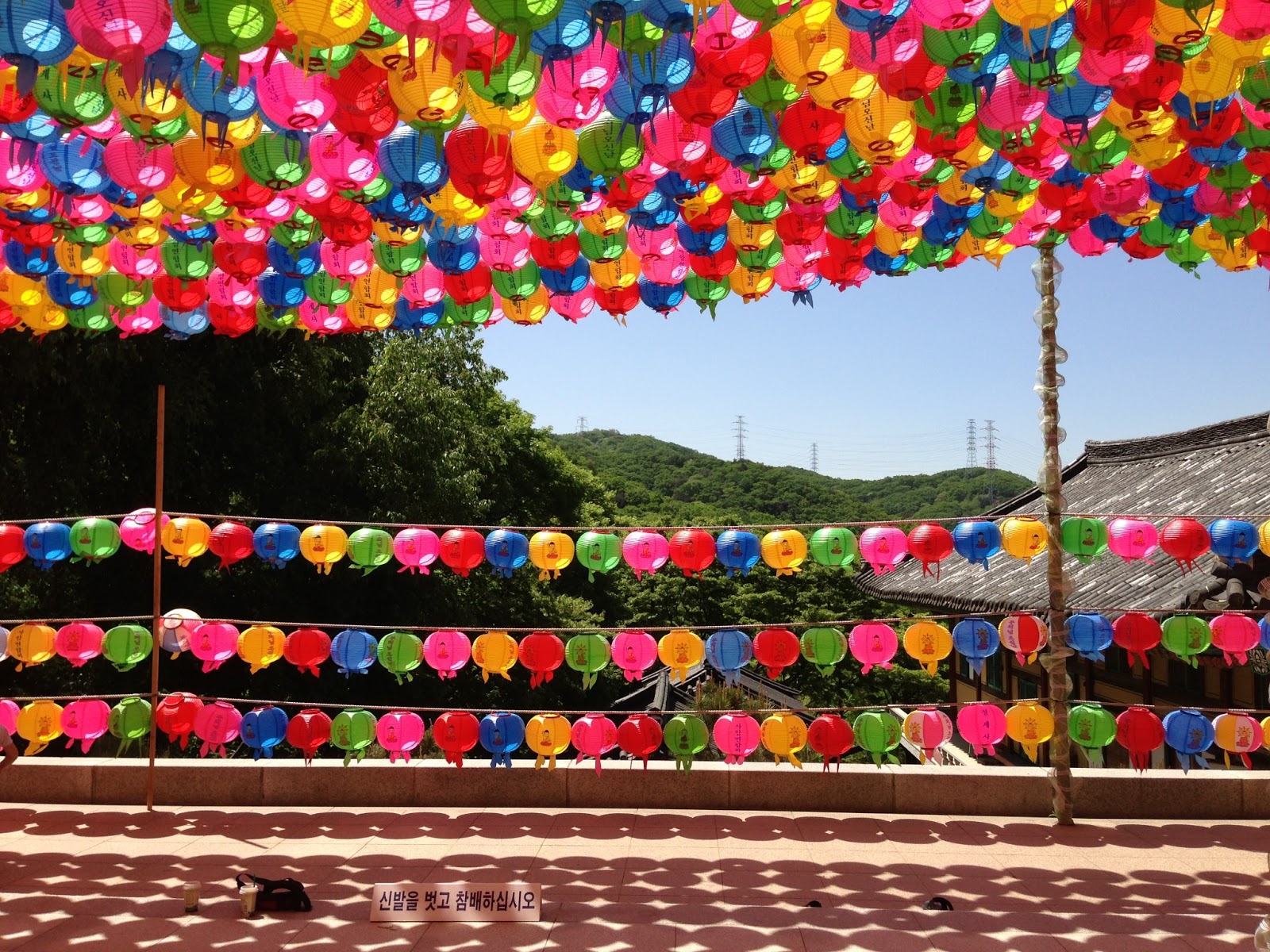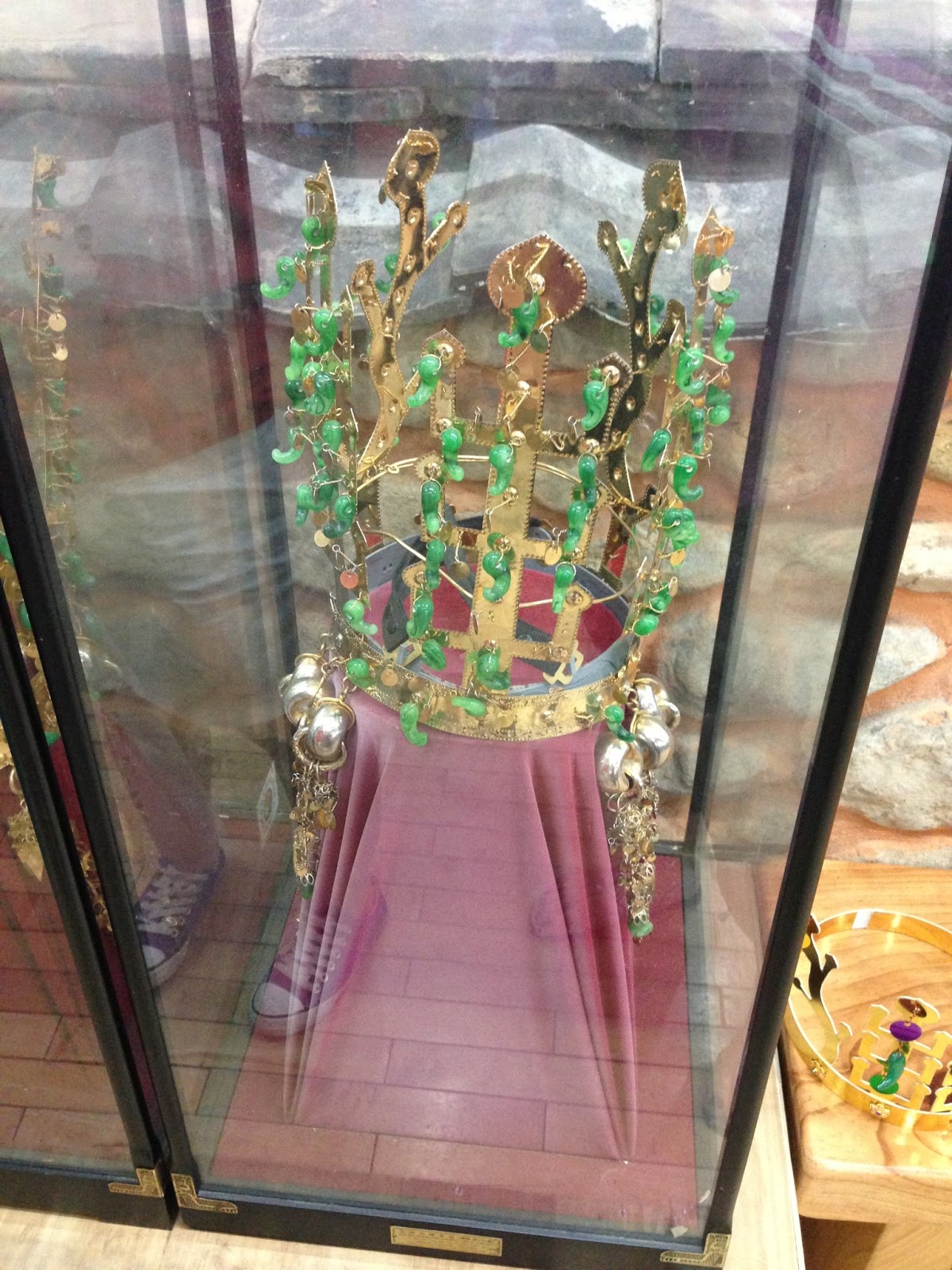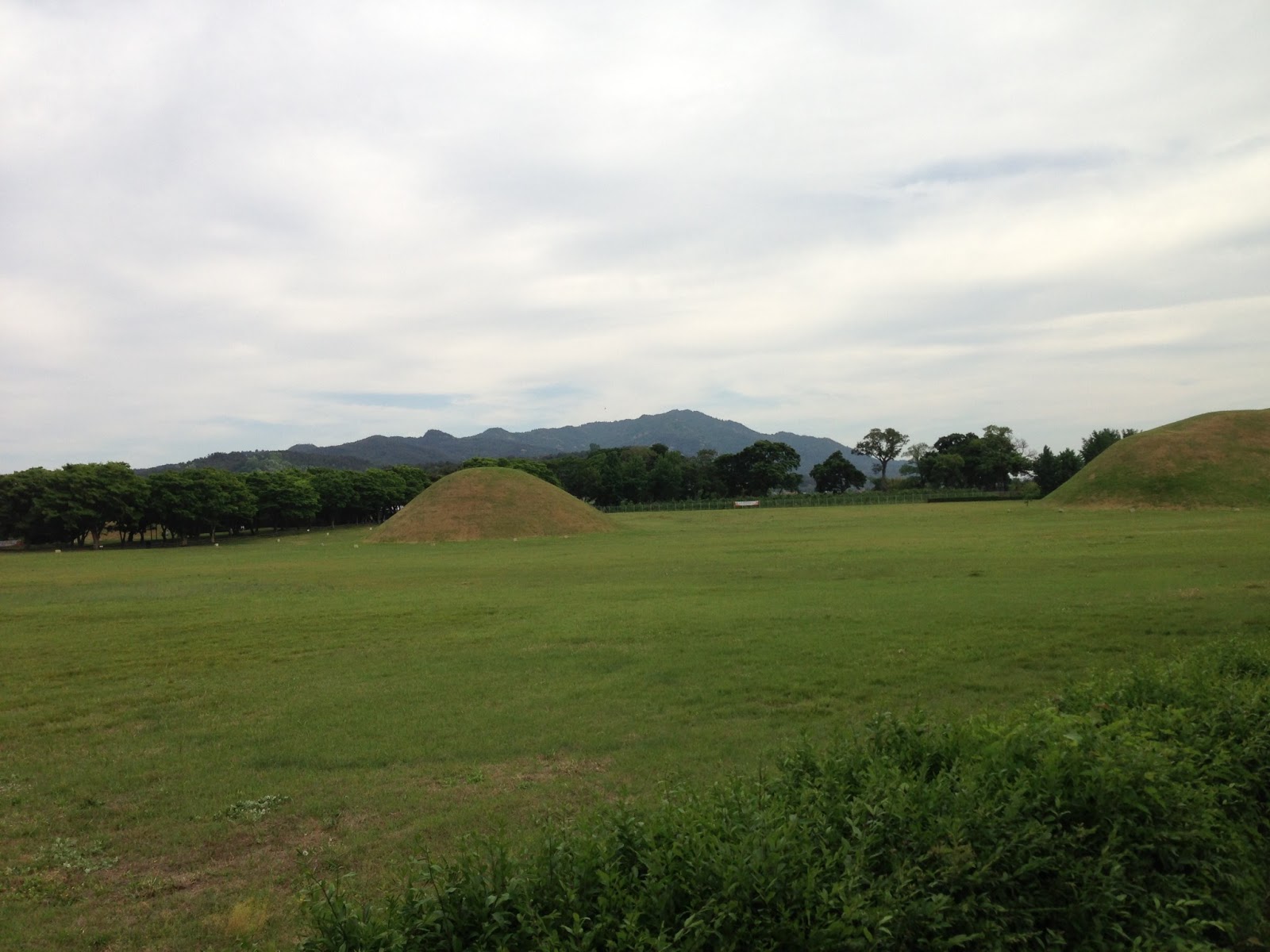This year in Korea, Buddha's birthday was celebrated on May 17th. It fell on a Friday so our school had a 3-day weekend. On Thursday we took the kindys to a temple on Suri Mountain (I think it was Suri but it could have been Gwanak). Lotus lanterns of all colors decorate the city and the temples in the weeks leading up to his birthday. When you enter a temple area there is usually a fountain for you to drink from, along with ladles for you to use. I'd like to learn more about the temples and the proper etiquette, etc, and you can actually sign up for a templestay to experience it and learn more about it. Four-hour programs to a week-long stay are available. You can choose from about 50 different temples to visit and most offer translators. I believe chanting, meditation, community work, hiking, and praying is involved but you can choose to participate in whatever you like. I'll let you know if I ever decide to do a templestay. For now, check out these pictures from this temple up in the mountains. This one featured a reclining Buddha. My co-teacher said when it came time to take her exams, her grandmother went to her temple and bowed 100 times so that she would do well. A formal bow is not just a short bend from the middle, but instead involves kneeling, raising your hands palm-up, bringing them to your forehead, then lowering to the floor, your arms go to the ground and your head kind of drops to the mat. I could barely do one but she said that it takes years to practice so I felt better.











For the 3-day weekend, my director invited the teachers to visit Kyung-ju with her. Kyung-ju is a coastal city about 250 miles from Seoul and is known for the Silla Dynasty. The Silla Kingdom ruled Korea (or most of it) between the 7th and 9th centuries. That's wicked old, and there was plenty of really old stuff to check out here. It was a pretty quick road trip and worth the drive. We stopped at rest stops pretty often because we were traveling with the teachers' kids and those were interesting in itself: they were clean and served pretty good food (not fast-food) with silver cutlery and porcelain china (okay, maybe not, but the food wasn't served in plastic or paper plates). I had the pork cutlet, one of my favorite Korean dishes. Of course the meals are served with sides, mine had soup, rice, kimchi, radish and macaroni salad.
 |
| Chloe messing with Ryan. |
 |
Road trip! Mimi, Johnny and Chloe in the back.
|
 |
| Pork cutlet, yum! |
 |
| The rest stops are clean and friendly. But they don't sell postcards or knick-knacks. |
When we arrived in Kyung-ju the first order of business was a tour of the area. As a history major, I would have loved to learn about the interesting things the tour guide was saying but alas, I do not understand Korean, so I could only look and take pictures. That was the frustrating thing about the whole weekend: so much history everywhere and no way to understand what everything is, so it was frustrating and at times, boring. (My director even gave us an itinerary of the weekend. Was anything in English? No! Why do I need this itinerary? So frustrating. Ryan and I just got off the bus when everyone else did, got on the bus when everyone else did, got in the car when everyone else did, etc, etc.)
 |
| My director with her son, Johnny, at the activity center. |
 |
| A Silla headdress |
 |
| Royal tombs, called tumuli. |

 |
| Our tour director explaining the tombs and statues. |
 |
| Tombs of the royal Joseon Dynasty. |
By evening, the tour took us to Bulguksa, the head temple for the Jogye order of Korean Buddhists. Basically, it's a bad-ass temple, hundreds of years old and is one of the National Treasures of Korea. UNESCO also added it to the World Heritage List. We toured the temple and checked out all the different Buddhas, altars and pagodas inside. I believe Bulguksa is referred to as the main temple but as you walk up the stone staircases, there are more temples on each level. From what I understand, these very old temples are closed to the public but are opened only on Buddha's birthday. So visiting this site and celebrating his birthday here was a once-in-a-lifetime experience!




 |
| The lanterns are strung together and are still on the ground. At the beginning of the ceremony and as it gets darker and before the procession begins, the lanterns are raised up. People "buy" the lanterns and their families names, or whomever they wish to pray for, are written on the long pieces of paper attached to the lantern. How much you pay depends on the temple and the type of lantern. I don't know how long the lanterns stay up, but they stay there, you don't take them home. |
 |
| The Dabotap, the stone pagoda. I don't know what its exact use is, I just know that it's very old and it's an official treasure. |

At around 5pm crowds started to line up outside the main, top-most temple. Our group was fifth in line, I think we booked it with the tour guide to get a close spot near the front. The monks passed out lotus lanterns, sticks and candles to everyone and we slowly lit up our lanterns. It was a very pretty sight, and got prettier as it got darker.
 |
| More National Treasures! Gilt-bronze statue of Buddha #1 |
 |
| Gilt-bronze statue of Buddha #2 |
 |
| Little stone pagodas found all around the temple. People build them from the rocks in the garden. You're supposed to make a wish, my co-teacher says, when you build one. |

 |
| First, they pass out the candles. |
 |
| Then they give you a lantern, stick and wire. |
 |
| Behold! |
Three of my co-teachers are Buddhists and had never been to this ceremony so they were excited about it, too. One of the teachers said you must make a wish on this day and Buddha will grant it! After the head monk said the prayers, the whole crowd circled the temple, chanting Buddha's name. The procession goes around the entire temple three times. It was very neat to see and I'm glad I got to be a part of it!
 |
| We're happy, really! We just look tired and hungry because we'd been up since 5 that morning. And it was freezing out because we're up in the mountains. |




































































